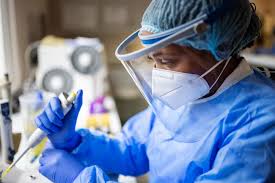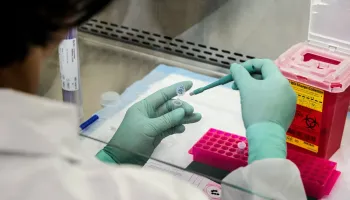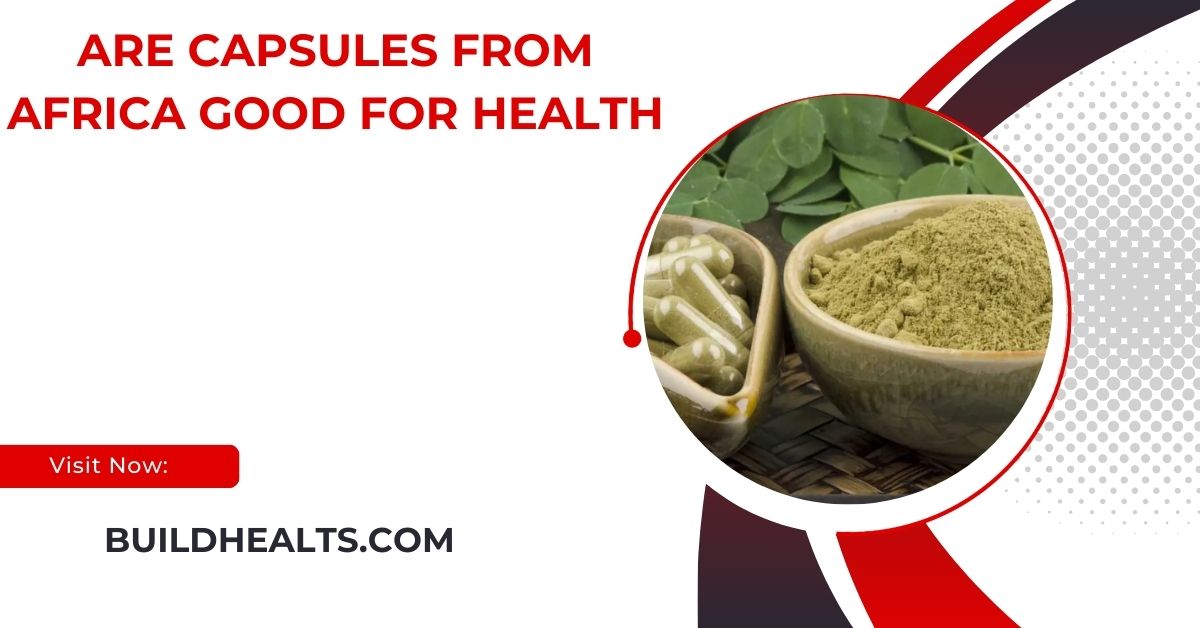With a health science degree, you can pursue various careers in healthcare, public health, and research. This degree prepares you to make a positive impact on individual and community health.
In this article, we will explore what you can do with a health science degree, including job options, further education opportunities, and how you can make a positive impact in the community.
What is Health Science?

Health science is the study of how to maintain health, recover from illnesses, and enhance wellness. It combines various fields, such as biology, chemistry, public health, and nutrition. Students learn about the human body, diseases, and effective strategies for promoting health and preventing illness. This interdisciplinary approach equips individuals with skills to tackle diverse health-related challenges.
Why Choose a Health Science Degree?
A health science degree opens doors to a rewarding career in a growing field. There is a constant demand for professionals who understand health issues and solutions. This degree equips students with the knowledge and skills needed to positively impact individuals and communities. Graduates can pursue careers in healthcare, research, or public health, making a significant difference in people’s lives.
Career Opportunities with a Health Science Degree:
Healthcare Administration:
Healthcare administrators manage facilities such as hospitals and clinics, overseeing operations, budgeting, and staff management to ensure high-quality care. A health science degree equips them with the knowledge of the healthcare system, allowing them to address patient needs effectively and improve facility performance. This role is crucial for maintaining the efficiency and effectiveness of healthcare delivery systems.
Also read: Horizon Nj Health Providers List – Tips For Using The Horizon Nj Health List!
Public Health Educator:
Public health educators play a vital role in teaching communities about health issues and promoting healthier lifestyles. They design and implement programs aimed at disease prevention and health improvement. Strong communication skills and a commitment to community service are essential in this position, allowing educators to effectively convey important health messages and inspire positive behavior changes among diverse populations.
Health and Wellness Coach:
Health and wellness coaches support individuals in achieving their personal health goals by providing guidance on nutrition, exercise, and lifestyle changes. With a background in health science, these coaches understand the scientific principles behind wellness, enabling them to offer effective, personalized strategies. Their goal is to empower clients to make informed choices and develop sustainable habits for long-term health improvement.
Clinical Research Coordinator:
Clinical research coordinators are responsible for managing clinical trials and research studies, ensuring compliance with regulations and accurate data collection. This role is essential for developing new treatments and advancing medical knowledge. Coordinators must possess strong organizational and communication skills, along with a solid foundation in health science, to navigate complex research protocols and facilitate effective collaboration among research teams and participants.
Occupational Health and Safety Specialist:

Occupational health and safety specialists focus on promoting health and preventing injuries in the workplace. They develop and implement safety programs and policies to assess risks and improve overall workplace conditions. A health science degree provides the expertise necessary to create effective strategies that enhance employee well-being, ensuring a safe working environment and compliance with health regulations for organizations across various industries.
Nutritionist or Dietitian:
Nutritionists and dietitians offer personalized dietary advice and meal planning to help individuals achieve their health goals. They work in diverse settings, including hospitals, schools, and private practices, to promote healthy eating habits and nutrition education. A strong foundation in health science helps these professionals understand the complex relationship between nutrition and health, enabling them to provide informed guidance tailored to individual needs.
Health Policy Analyst:
Health policy analysts examine and evaluate health policies and their impacts on populations. They collaborate with government agencies and organizations to develop strategies that enhance public health outcomes. A degree in health science offers a solid foundation for understanding healthcare systems and policies, equipping analysts with the skills needed to assess current practices and advocate for effective health initiatives that benefit communities.
Medical and Health Services Manager:
Medical and health services managers are responsible for coordinating healthcare services and improving the efficiency of healthcare delivery. They plan and oversee operations to enhance patient care and organizational performance. A health science degree provides valuable knowledge about healthcare systems, enabling managers to navigate challenges effectively, implement best practices, and foster a patient-centered approach within their organizations for improved outcomes.
Also read: How To Unenroll From Va Health Care – Essential Steps For Veterans!
Further Education Opportunities:
Master’s Degree in Public Health (MPH):
A Master’s in Public Health (MPH) prepares you for leadership roles in health promotion and disease prevention. The program emphasizes understanding population health, equipping graduates to create impactful community health initiatives. This degree is ideal for individuals aiming to enhance public health outcomes on a larger scale, contributing positively to community well-being.
Master’s in Healthcare Administration (MHA):
A Master’s in Healthcare Administration (MHA) focuses on the business and management aspects of healthcare. It teaches essential skills in finance, policy, and operational management within healthcare settings. Graduates are prepared for leadership roles in hospitals, clinics, and other facilities, ensuring effective service delivery while balancing patient care and administrative responsibilities.
Doctorate in Health Science (DHSc):

A Doctorate in Health Science (DHSc) is tailored for those pursuing research or academic careers in health sciences. The program emphasizes advanced theories, methodologies, and practices within the field. Graduates can lead high-level research initiatives or teach at universities, contributing significantly to health science knowledge and educating the next generation of professionals.
Specialized Certifications:
Specialized certifications in health fields like health coaching, nutrition, or public health enhance your professional qualifications. These certifications demonstrate expertise and commitment to specific areas within health science, improving your job prospects. Many organizations offer these credentials, helping you stand out in the competitive job market and pursue focused career paths aligned with your interests.
Making an Impact in the Community:
Promoting Healthy Lifestyles:
With a health science degree, you can educate your community about healthy living. This involves sharing essential knowledge on nutrition, exercise, and disease prevention. By leading workshops or community events, you empower individuals to adopt healthier habits, ultimately improving their well-being and fostering a culture of health within your community.
Also read: Is Balsamic Vinegar Good For Health – A Complete Guide!
Addressing Public Health Issues:
As a health professional, you can actively address public health challenges like obesity and smoking. Collaborating with local organizations allows you to create and implement targeted programs that improve access to healthcare and resources. These initiatives are crucial for promoting healthier lifestyles and reducing health disparities within the community.
Supporting Vulnerable Populations:
Health professionals often work with vulnerable groups, including low-income families and the elderly. Understanding their unique challenges enables you to provide essential support and resources. By advocating for these populations and connecting them with necessary services, you can significantly enhance their health outcomes and improve their quality of life.
Conducting Research:
Engaging in research within health science allows you to contribute to groundbreaking discoveries. Your research can lead to innovative treatments and a deeper understanding of health trends. This work is vital for informing healthcare practices and policies, ultimately benefiting both individuals and the broader community through improved health outcomes.
FAQ’s
1. What jobs can I get with a health science degree?
You can work as a healthcare administrator, public health educator, health coach, clinical research coordinator, and more, focusing on improving health in various settings.
2. Is further education necessary after a health science degree?
While many entry-level jobs are available, pursuing advanced degrees like a Master’s in Public Health or specialized certifications can enhance your career opportunities.
3. How does a health science degree help in the community?
Graduates can educate communities about health, address public health issues, and support vulnerable populations by promoting healthier lifestyles and providing essential resources.
4. Can I work in research with a health science degree?
Yes, you can work in clinical research or public health research, contributing to new discoveries and health policy development that benefit communities.
5. What skills will I learn in a health science program?
You will gain knowledge in biology, public health, communication, and management, equipping you to tackle health-related challenges effectively.
Conclusion
In conclusion, a health science degree opens up diverse career opportunities in healthcare, public health, and research, allowing graduates to significantly impact individual and community health. This interdisciplinary education equips students with essential knowledge and skills to address various health challenges effectively. Whether through direct patient care, community education, or research initiatives, health science graduates play a vital role in promoting healthier lifestyles and improving overall public health outcomes.




